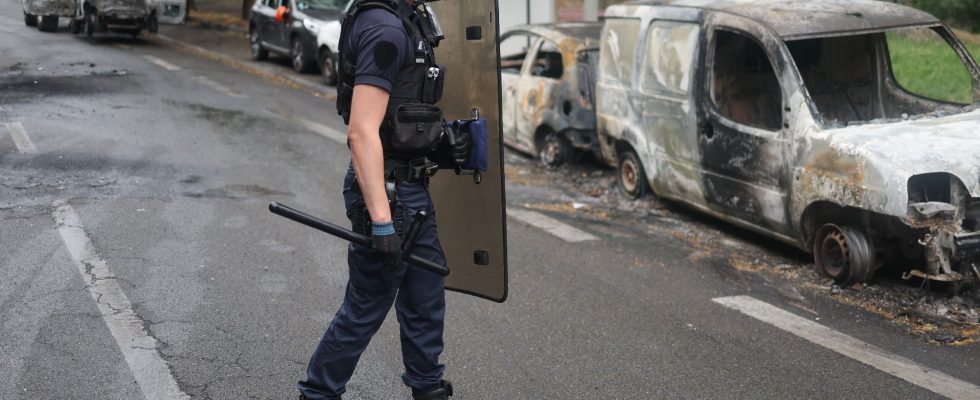Today I celebrate the eleventh anniversary of my father’s death. More exactly of the burial of this character that I finally attended rather little, since he chased me out of his home when I was 14 years old. I didn’t want to go to high school anymore. “If you stop your studies, you break.” He spoke like that, the Stalinist in its purest form. I wanted to do theatre. I don’t know if there are still children who want to do theater at 14. They should already know what it is. Today, 14 years old is already the age when one passes for a veteran among the June 28 rioters. Making movies has more prestige, but not as much as a video on YouTube, or a set on BFM, or wiggling your ass on the catwalk at the next Pharrell Williams show, in full black, a firework mortar instead of the handbag, and in the background, the crappy video of the two policemen in white helmets, leaning on the door of a yellow Mercedes, with an opening roof… We know the rest. It’s called the society of the show and the absent father.
It wasn’t until a week after Nahel’s death that his father resurfaced. Fiction always lags behind. As for the events that followed, it was not the hundreds of cars, shops and other buildings burned, destroyed and looted that would bring Nahel back to life. And whatever the cost of the repairs, this famous billion euros will never reach, in horror, the pain caused by the death of a 17-year-old boy, murdered at close range, from an unjustified shooting by a man supposed to be a peacekeeper.
When you have seen enough of these “inadmissible riot scenes”, I advise you to go and see The Packs, the directorial debut of Kamal Lazraq. Because in this film, an opportune counter-example, Hassan is not an absent father, even less disappeared, he is even much too present for the taste of his son Issam. Interpreted by Abdellatif Masstouri whose face is a spectacle in itself: this boxer’s nose, this long hair of an old young man, this childlike half-salted look, Hassan is a completely abandoned, despairing father, a sort of Moroccan Papaoutai, cheated by his years as a tiny thug, an eternal loser in the suburbs of Casablanca, where the houses are not finished, the streets not started, misery in great shape. Everything happens at night. And as if it weren’t enough for him not to have understood anything about the system, about how to get out of it other than by his bullshit tricks, here’s another trick: all he has to do is kidnap a guy and deliver to another guy. It’s just to teach him, scare him. It can’t go wrong. An easy job for Hassan who has seen others. He just needs his son to dick the guy. It is the young Ayoub Elaid who interprets Issam, and proves to be an exceptional actor from one end of the film to the other, and until the photocall, after The Packs received the jury prize, Un certain regard section, at the last Cannes festival: not a smile. Ayoub Elaid carries with the impassivity of the great the tragedy of this son, victim of the compassion he feels for his father. A perfection.
When primitive violence repeats itself
The moral of the film is simple: failing to go back to the original fault, that of primitive violence, it is repeated, more serious each time.
To understand what happened in France at the end of last month, we have to go back to the origins of the evil. It’s all the fault of the videos, series, games, American films, news channels that permeate the brains of these fragile beings, heat them up so well that they hardly leave their homes to go do their job as policemen, they derail. We must therefore start by prohibiting them from watching these toxic videos and from carrying weapons. In the meantime, justice must punish them, but for real, when they take children for video game characters.
* Christophe Donner is a writer
